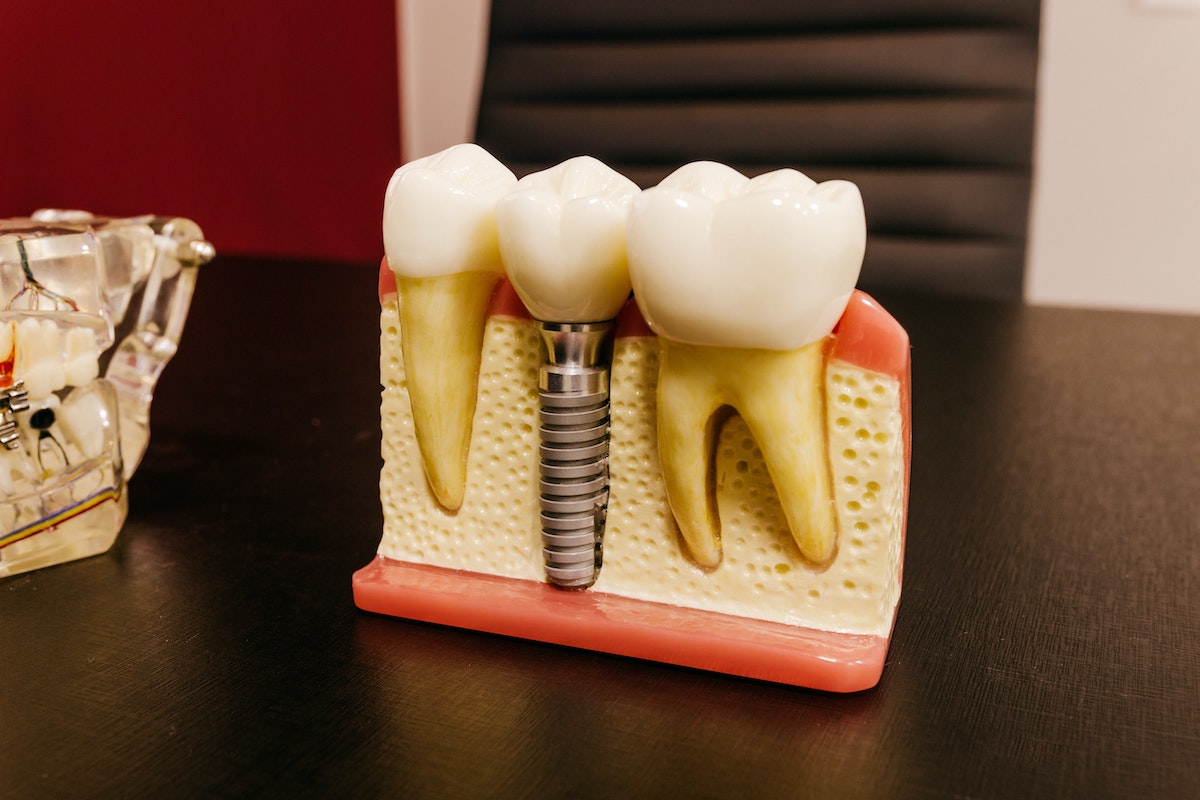Whether due to accidents or tooth decay, millions of Americans are missing teeth. People often replace missing teeth for cosmetic reasons, but there are other good reasons to replace them, too. Missing teeth can lead to further oral health problems in the future.
Dental implants provide a more permanent replacement for those missing teeth, and they can be a better solution than more traditional alternatives such as dentures or bridges. Dental implants are expensive, but many patients find that the benefits easily outweigh the costs.
What Are Dental Implants?
Dental implants are metal posts surgically grafted onto the jawbone and covered with a dental crown. They are used to replace teeth that are missing due to an accident or disease (for example).
Dental implants typically have two parts: A post and a crown. The post or abutment replaces the roots of the lost tooth. The surgeon places the post, usually made of titanium, into the jawbone below the gumline. A custom crown is then attached to the post.
The Dental Implant Process

The dentist begins with an impression of the patient’s bite so all of the teeth will align. (Missing teeth can cause jaw misalignment, which can affect everyday tasks like eating and sleeping.) An oral surgeon then performs the procedure under local anesthesia. Most people who have had dental implants say the discomfort of the procedure is similar to that of a tooth extraction.
When completed, the patient will have an implant matching the color and feel of their natural teeth. This new tooth is virtually indistinguishable from their other teeth.
Alternatives to Implants
Now patients must decide which tooth replacement procedure will work best for them. While dental implants require surgery and are more costly than dentures or bridges, implants are up to 98 percent successful. With proper care they typically last much longer than the alternatives.
Elderly patients may decide that dentures provide a more cost-effective solution, especially if they have already lost a number of their adult teeth. Dentures need to be replaced every 3-5 years, while implants typically last 20 years or more.
Implants are the only solution if people are missing teeth in different parts of their mouths. Younger patients often prefer dental implants. They look like natural teeth and can be brushed and flossed just like them. Normal care along with regular dental exams ensures that implants will last for years.
Another alternative to implants is a dental bridge, which is similar in many ways to an implant. Implants are secured to the jaw, while bridges are fixed to crowns placed on adjacent teeth. These crowns then provide a bridge for the missing teeth.
Bridges could be a less expensive alternative if a patient is missing only a few adjacent teeth. But they have their drawbacks. Dentists must grind down healthy teeth and cap them with crowns. These are then connected by a bridge that is topped by another crown. Because the replacement crown is not connected to the jawbone, infection could still occur below it.
Despite the expense, more people are getting implants today than ever before.
Why Get Implants?

Besides extraction and accidents, loss of teeth can be due to such causes as aging and gum disease.
Many people may find that they can live just fine with missing teeth. However, this can lead to jaw misalignment, which may disrupt sleep or make eating and speaking more difficult. Missing teeth promote gum disease and other types of infection, which are often painful. Finding the right replacement for missing teeth can noticeably improve one’s quality of life.
Advantages for choosing dental implants include:
- Implants look and feel like natural teeth.
- Implants facilitate eating and speaking.
- Implants are durable, and many last a lifetime.
- Implants are better for oral health since nearby teeth are not altered as they are with a bridge.
For both cosmetic and health reasons, many patients find that dental implants are the best fix for their missing teeth.
Anyone healthy enough for a routine extraction or oral surgery is a good candidate for this procedure. Patients should have healthy gums and enough bone to hold the implant. Smokers or individuals with chronic conditions such as heart conditions or diabetes should make sure that dental implants are the right procedure for them.
Cost of Implants
The advantages of dental implants do come at a cost. A single implant costs upwards of $5,000. For that reason, many people still choose dentures or dental bridges since these both only cost a fraction of implants. Dentures are around $500 and dental bridges typically cost $2,000 to $2,500 per tooth.
Many insurance companies do not cover implants, but this often depends upon the reason for the implants. Patients ought to consult with their dental professional to find a financing solution that is right for them. These days increasing numbers of people are deciding that the benefits of a long-lasting, convenient solution for their missing teeth far outweighs the financial costs.
Find out if Dental implants are Right for You
It should go without saying that only qualified dental health professionals should provide dental implants. If you’re tired of dealing with the pain caused by that missing tooth or if you’d just like to brighten your smile, you can use our appointment finder to consult one of our oral surgeons today.


